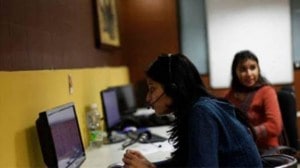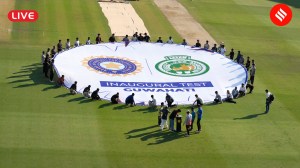Consistent with party chief Mayawati’s objections to the proposal since 2019, the Bahujan Samaj Party (BSP) has opposed the idea of holding simultaneous elections in its submission to the high-level committee chaired by former President Ram Nath Kovind, The Indian Express has learnt.
When Prime Minister Narendra Modi spoke of the need for simultaneous elections and invited leaders for an all-party meeting soon after the 2019 elections, the BSP was among the parties that did not attend. On the day of the meeting, June 19, 2019, Mayawati said in a series of tweets that elections cannot be a problem for any democratic nation and cannot be seen with the perspective of expenses and wastage of money.

“Talk of One Nation, One Election in the country is actually an attempt to divert attention from burning issues such as poverty, inflation, unemployment, and increasing violence,” she had said.
She had said she would have attended the meeting if it was to discuss the issue of EVMs, which, according to her, were losing public confidence. On June 23, 2019, she had said the BJP’s idea of holding Lok Sabha and Assembly elections together was a ploy to win both elections by manipulating EVMs in one go.
According to sources aware of the situation, the BSP has told the Kovind committee that it is opposed to the idea of holding simultaneous elections. The party, however, did not meet the Kovind committee to make its representation during the consultative process, they said.
When asked, BSP leaders said they were unaware about the party’s stance on the issue.
A national office-bearer of the BSP said: “I am not aware what the party has submitted to the panel (Kovind committee). The party has not formally told its leaders that whether it has made any submission or not. As old news reports say that Behanji (Mayawati) had opposed the idea of simultaneous elections in 2019, her stance is expected to be the same at present, too, because she has not shared her opinion in public in recent days.”
Story continues below this ad
Repeated attempts to reach BSP national general secretary S C Mishra, who handles the party’s Election Commission and legal matters for a comment, got no response.
BSP Uttar Pradesh state president Vishwanath Pal said One Nation, One Election was a national-level matter. “We party leaders comment only when Behanji says something. There is no tweet in recent days on this matter and we have not spoken to her about this. I cannot comment on this at present,” he said.
The committee had written to all national and state parties in October last year, asking them to send in their views on holding simultaneous elections. The last date for parties to send in their written responses was January 18, after which leaders of several parties met Kovind as well.
Opposition parties, including the Congress, the Aam Aadmi Party, the Samajwadi Party, the Trinamool Congress, the Communist Party of India and the CPI (Marxist), have told the Kovind committee that they oppose the idea of simultaneous elections. The BJP, for its part, has recommended that the Lok Sabha and Assembly elections be held together in the first phase, and local body elections be synchronised later.
Story continues below this ad
Set up by the Union Law Ministry on September 2, 2023, the committee includes Home Minister Amit Shah, former Leader of Opposition in the Rajya Sabha Ghulam Nabi Azad, former Finance Commission chairperson N K Singh, former Lok Sabha secretary general Subhash C Kashyap, former Chief Vigilance Commissioner Sanjay Kothari, and senior advocate Harish Salve as members.
The committee was tasked with suggesting the ways, including amending the Constitution and the Representation of the People Act, 1950 and 1951, for holding simultaneous elections to the Lok Sabha, the State Assemblies, municipal corporations, and panchayats. The committee’s terms of reference also include giving solutions in case of a hung House, adoption of no-confidence motion or defection of legislators.
According to sources, the committee’s report is expected to be finalised soon.










